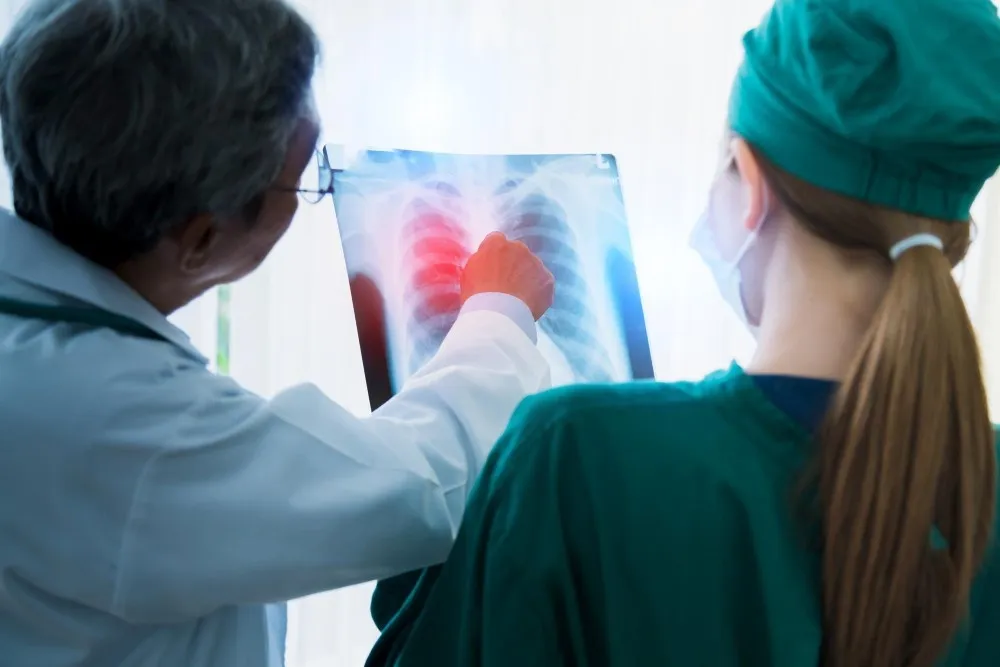Can cervical cancer run in the family, or is it something we can stop before it starts? This is one of the biggest doubts women have when they visit a gynaecologist. Cervical cancer is one of the leading causes of cancer deaths among women. That fact alone can cause fear. But it also raises hope, because prevention and early action make a huge difference.
Now, when someone hears a family member had cervical cancer, the natural reaction is to think, "Am I next?" That’s when the question “Is cervical cancer hereditary?” often arises. The truth is not as simple as yes or no. It needs understanding, a bit of science, and awareness of everyday habits and risks.
Let's break it down in a simple way and understand how genetics, lifestyle, and early detection come into play.
Is Cervical cancer Hereditary? Understanding the Genetics
When we talk about hereditary cancers, people often assume that if a mother or sister had cancer, the daughter will too. But with cervical cancer, it’s not that straightforward.
Unlike breast cancer — where genes like BRCA1/BRCA2 significantly raise your risk — cervical cancer is primarily caused by a virus: the human papillomavirus (HPV).
But in some cases, if your first-degree relative, like your mother or sister, had it, you could have a slightly higher chance. Why?
Possibly due to:
-
Shared hormonal patterns
-
Similar immune responses
-
A genetically weaker ability to clear HPV from the body
But this genetic influence is minor. The real drivers are exposure to HPV and lack of regular screening.
It is important for you to know that HPV doesn’t always lead to cancer. Only high-risk HPV strains, mainly types 16 and 18, are linked to cervical cancer. And even then, it usually takes years of untreated infection for cancer to develop.
How Cervical Cancer Starts — HPV and Cell Changes
Most people don’t realise this: cervical cancer doesn't happen overnight; it starts slowly. It usually begins with an HPV infection, transmitted through sexual contact. In most women, it clears off by itself. But sometimes, it stays and creates changes in the cervical cells.
Over 5-10 years, these abnormal cells can grow. They become pre-cancerous first. If still unchecked, they turn into cancer. That’s why Pap smears and HPV tests are not optional – they are lifesavers.
By the time symptoms like bleeding or pain show up, cancer may already be in an advanced stage.
Remember, early-stage cervical cancer often has no symptoms at all. So don’t wait for signs. Get screened every 3 years after age 30, or as your doctor recommends.
Can Cervical Cancer Be Prevented? Yes — and It’s Easier Than You Think
Here comes the good news. Cervical cancer is one of the most highly preventable cancers. Even if you're at slightly higher risk, you can stop it before it starts with simple, powerful steps. Here’s how:
-
HPV Vaccination: It’s now part of the national immunisation plan for girls aged 9-14. Even young women up to 26 years old can take it. The vaccine protects against high-risk HPV strains.
-
Regular Screening: Pap smear and HPV test are both essential. Don't skip them even if you feel healthy.
-
Practice Safe Intimacy: Use protection. Limit sexual partners. That lowers HPV transmission.
-
Quit Smoking: Smoking affects immunity and makes it harder for the body to fight HPV.
-
Maintain Hygiene: Especially during periods. Poor menstrual hygiene can increase infection risk.
Think of prevention like locking your doors. It doesn't mean the thief is outside, but why take a chance?
Read Also: Cancer Prevention: 15 Steps to Stay Healthy
Cervical Cancer vs Other Female Cancers: What Makes It Different?
|
Feature |
Cervical Cancer |
Ovarian Cancer |
Endometrial Cancer |
Breast Cancer |
|
Main Cause |
HPV infection |
Unknown, genetics |
Estrogen imbalance |
BRCA genes, lifestyle |
|
Age Group |
30-50 |
50+ |
50+ |
Any age, common in 40+ |
|
Symptoms Early |
Usually none |
Bloating, pain |
Irregular bleeding |
Lump in breast |
|
Preventable |
Yes, vaccine + screening |
No vaccine |
Somewhat |
Regular screening |
|
Screening Test |
Pap + HPV test |
Ultrasound |
Endometrial biopsy |
Mammogram |
Signs of Cervical Cancer That Women Often Miss
Cervical cancer whispers before it screams. Here are some signs women often ignore:
-
Bleeding between periods
-
Bleeding after sex
-
Foul-smelling vaginal discharge
-
Pelvic or lower back pain
These symptoms can mean many things, not just cancer. But if they continue, don’t wait. Go to a doctor. Even something small could save your life.
Another mistake is using home remedies or consulting quacks. Cancer doesn’t wait. And early treatment has a high success rate.
Does Menstrual Hygiene Affect Cervical Health?
Yes. Poor hygiene during periods can increase your chances of HPV-related infections.
Issues include:
-
Using an unclean cloth or not changing pads frequently
-
Ignoring vaginal infections
-
Not washing hands before and after changing pads
This can cause chronic inflammation and weaken cervical immunity.
Simple fixes:
-
Change pads every 4–6 hours
-
Avoid scented products
-
Wear breathable cotton undergarments
Keeping the cervix clean and dry helps reduce infection risk.
Cervical Cancer After 50 — Are You Still at Risk?
Yes. Many women think menopause protects them. But HPV can stay hidden in the body for years. It may turn into cancer even in your 60s. So, continue screening till 65. Sometimes, older women miss out because they don’t have regular periods.
Doctors now recommend HPV co-testing every 5 years for women between 30–65. If results stay normal, the risk goes down. But never stop testing on your own. Let your doctor decide when it's safe to stop.
Conclusion: Your Power Is Greater Than Your Risk
So, is cervical cancer hereditary or preventable? It can be both – but mostly, it’s preventable. While a family history increases the risk slightly, the power still lies in your hands. Screen regularly. Get vaccinated. Maintain hygiene. Say no to smoking. And keep asking questions. Stay Aware.
Your body speaks in whispers before it cries for help. Listen early. Act early. That’s how you stay safe.
Related: Is Pancreatic Cancer Hereditary? Here's the Real Truth
Frequently Asked Questions
Can a virgin get cervical cancer?
Yes, though the risk is much lower. HPV spreads through sexual contact, but not always through intercourse. Skin-to-skin contact can spread it.
Can I take the HPV vaccine after 30?
You can, but its effect may be reduced. Doctors suggest it before sexual activity starts. But ask your gynecologist. Sometimes, it’s still helpful.
Does pregnancy increase cervical cancer risk?
No, pregnancy doesn’t cause it. But if you already have abnormal cells, pregnancy may change the cervix's immune environment.
How is cervical cancer treated in India?
Through surgery (hysterectomy), radiation, and chemotherapy. Newer methods include robotic surgery in big hospitals.
Can cervical cancer come back?
Yes, especially if not treated fully. Regular follow-ups are necessary for 5 years after treatment
Reviewed by







